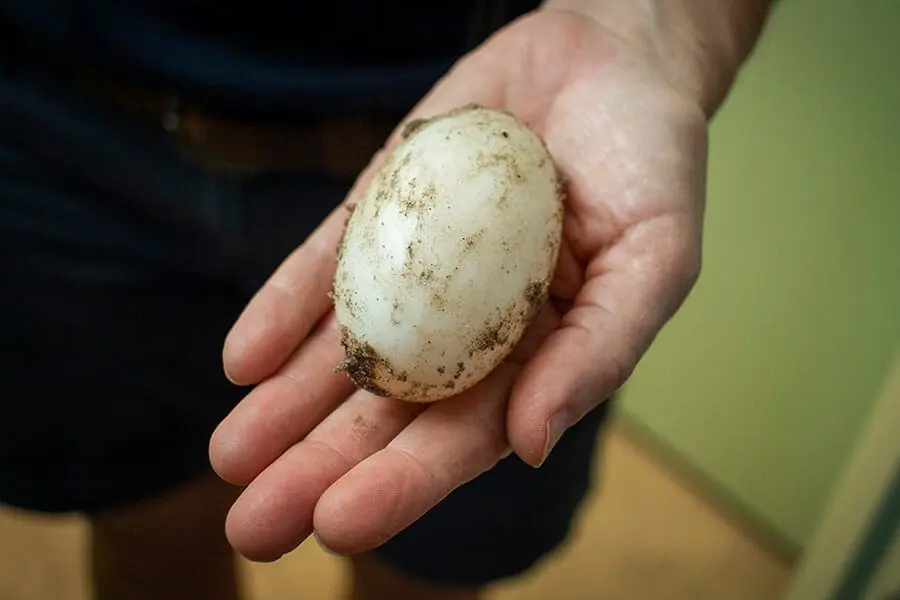

Crikey! Crocodiles may be large animals, but their eggs are only around three inches long.
For several years now, we’ve tried to hatch American crocodile eggs, but have yet to be successful. This year, we’re hoping that our luck changes thanks to a new training plan.
Leaving the eggs in the open-air habitat would leave hatchlings vulnerable to predators, so when we can, we collect the eggs and place them in a behind-the-scenes incubator. Because female crocodiles are highly protective of their nests, the eggs were traditionally collected when would-be mom Lilly was called to the other side of the habitat and we could distract her with food.
For months, Wild Florida supervisor Tom had been working with Lilly to shift her to a secure spot on one side of the habitat so we could safely collect her eggs less than a week after laying—the optimal time to begin artificial incubation. His efforts were successful, and we gathered 46 eggs; four were damaged, so a total of 42 are currently incubating.
Through a process called candling, we were able to determine that at least a few of the eggs are fertile, which is great news! Crocodile eggs take approximately 9–10 weeks to hatch, at which time we would work with other facilities to place the babies as we do not have the necessary resources to add more crocodiles to our Wild Florida habitat.
American crocodiles are top predators in their natural habitats, which makes them an important part of the ecosystem. The endangered species faces threats of habitat loss, human-animal interaction, road strike and poaching.